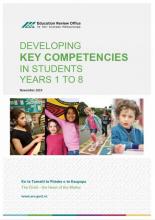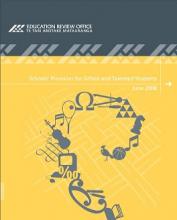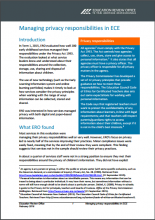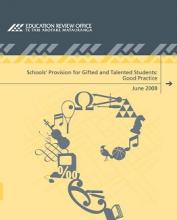Developing Key Competencies in Students Years 1-8
This Education Review Office (ERO) report describes what a sample of New Zealand schools with Years 1 to 8 students are doing to integrate and support the development of key competencies in their students.
It outlines the support that schools are giving their students to use these competencies in their learning and wellbeing. The report also explores what schools are doing to promote the understanding of key competencies among parents, whānau and trustees.






